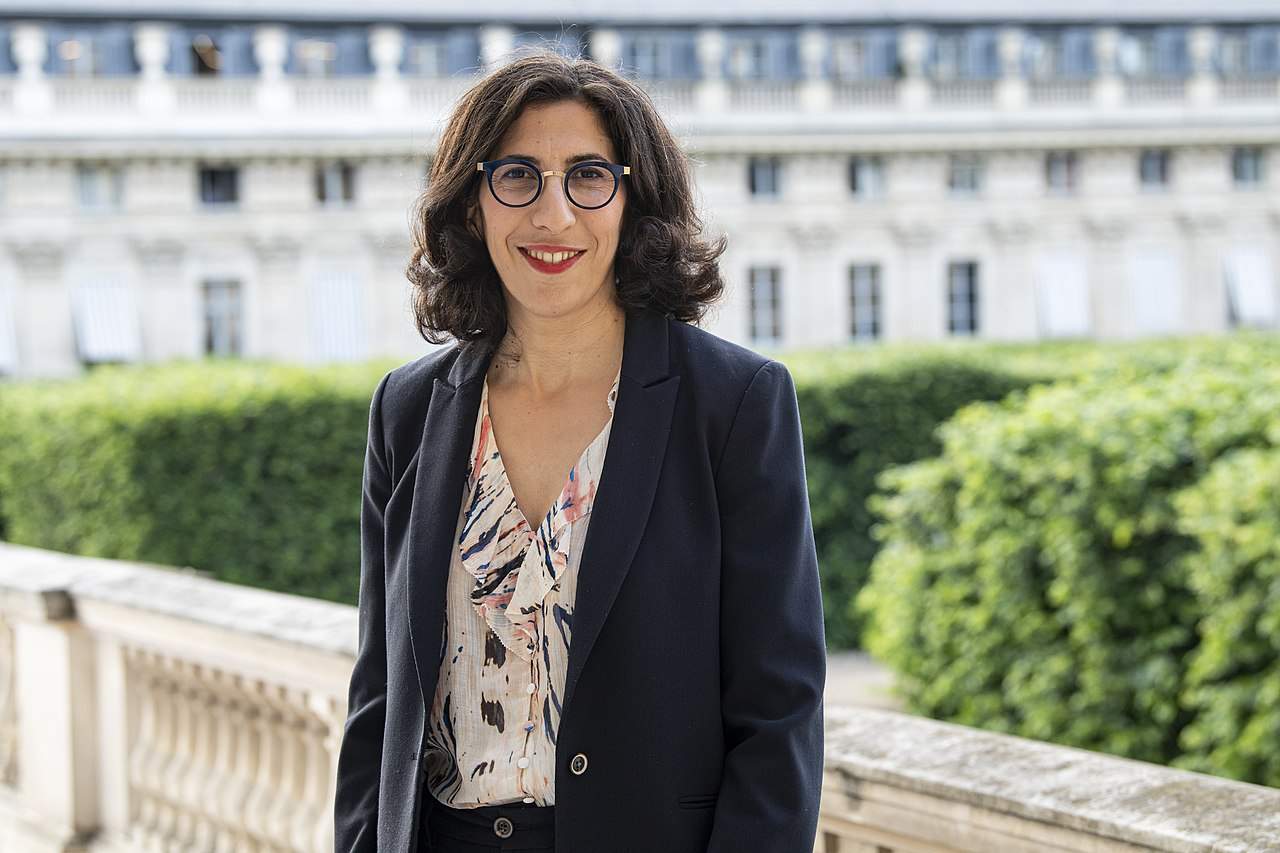Who is Rima Abdul-Malak, the new French minister of culture
There has been a change at the top of the Ministry of Culture in France: after Emmanuel Macron ’s confirmation in the presidential election last April 24, the new government, led by Élisabeth Borne (the second woman in the history of France to hold the post of prime minister), was formed in May, and the new culture minister is the French-Lebanese Rima Abdul-Malak, formerly Macron’s advisor for culture and communication.
Born in 1979 in Beirut into a Christian family, Rima Abdul-Malak lived in Lebanon until the age of ten: after her family left the country in 1989 as a result of the Lebanon War, she settled in Lyon, as her father had spent his university studies there. She studied at the Institute d’études politiques in Lyon where she graduated in political science in 1999, and then the following year obtained a postgraduate degree in Development and International Cooperation at the Sorbonne. She began working in 2001 as director of the association Clowns Sans Frontières, a fellowship whose goal is to provide support to children and victims of humanitarian crises in general through clowning. Later, between 2007 and 2008, she was responsible for the dissemination of French music abroad for the Cultures France institute (now Institut Français), while in 2008 she was a member of the cabinet of Christophe Girard, councilor of the city of Paris, and in 2014 she became culture advisor to the mayor of Paris, Bertrand Delanoë. She was later appointed head of the visual arts department at the French Embassy in the United States, and following this experience, in 2019, she became culture and communication advisor at the Elysée Palace, a post she held until her appointment as minister.
Little known to the general public but a name well known to insiders, Rima Abdul-Malak has always preferred to work away from the limelight, while still making important contributions. During her time in Paris, for example, she was involved in the creation of the Paris Musées foundation that brings together the fourteen municipal museums, led the development of Centquatre, a cultural space dedicated to contemporary arts, has long been involved in live performance, and during the Covid pandemic contributed to the “Mondes nouveaux” plan aimed at supporting the French cultural industry. She is also credited with the conception of the “Pass Culture,” the voucher for 18-year-olds inspired by the Italian 18app, introduced in 2019.
“It is the ministry that gives meaning and taste to life,” Abdul-Malak tweeted on the day of her appointment last May 20. “Thank you to the President of the Republic and the first minister for their trust. To all those and everyone who make our heritage, our creativity, our cultural industries come alive: count on my commitment!” Abdul-Malak’s job will be very difficult: in contrast to Italy, where cultural heritage has had continuity for years (except for the brief Bonisoli interlude, the Italian Ministry of Culture has been headed by Dario Franceschini since 2014), France has had 15 different ministers in 30 years. French culture has emerged with broken bones from the pandemic, and the main priority indicated by insiders will be to restore oxygen to a sector undermined by the Covid crisis, which has depopulated museums and impoverished the creative and cultural industries. Also on the minister’s table is another urgent and deeply felt issue in France, that of decolonization: Rima Abdul-Malak is called upon to follow up even more forcefully on the policies of her predecessors on the issue of art restitutions to former colonies.
Image: Rima Abdul-Malak. Photo by Thibaut Chapotot
 |
| Who is Rima Abdul-Malak, the new French minister of culture |
Warning: the translation into English of the original Italian article was created using automatic tools. We undertake to review all articles, but we do not guarantee the total absence of inaccuracies in the translation due to the program. You can find the original by clicking on the ITA button. If you find any mistake,please contact us.




























